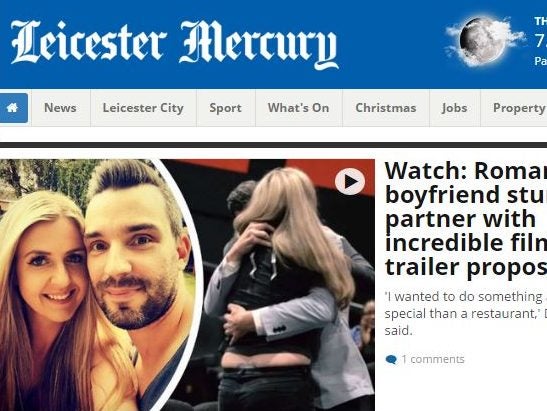
The Leicester Mercury was entitled to include a teenage school girl’s online comments about a “controversial” school uniform policy in its report, despite not having the consent of her guardians.
The article was published on 2 September with the headline: “Term starts with shoe row” and appeared online and in print.
The online version of the story included names of pupils who had signed an online public petition to oppose new rules about the type of shoes they could wear to school, alongside their comments.
Jason Lightfoot complained to the Independent Press Standards Organisation (IPSO) that by including his step-daughter’s name in its story, the Mercury had breached the Editor’s Code of Practice under clauses protecting privacy and reporting on children.
Lightfoot said he was concerned the 15-year-old’s comments had been published “without his consent” and that by quoting and naming her in the article the newspaper had “given the impression that she had been interviewed”.
The Mercury denied breaching the code and said the girl had “posted publicly viewable comments on a public website of her own volition”.
It added that the complainants step-daughter had not been photographed or interviewed and that as a result it was “not under an obligation to seek parental consent” before naming her.
As a gesture of goodwill, the Mercury removed pupils’ names from the online article “soon after it had received complaints from one of the parents”. The names were also kept out of the printed version of the article.
IPSO’s complaints committee ruled that there was no breach under either clause six or two.
It said: “The Code provides particularly strong protection for children. As such, honouring the full spirit of the Code – as required by the preamble – means that what will constitute an ‘interview’ for the purposes of Clause 6 (iii) is broader than circumstances where a journalist directly solicits comment or information from a child.
“It might cover the republication of material solicited by third parties. Depending on the circumstances, it might also cover cases where the comments published in the newspaper were unsolicited, such as this one, where the child had posted comments online of her own volition.
“However, Clause 6 (iii) only requires parental consent where the subject matter of the comments concerns the welfare of a child.
“In this case, the complainant’s step-daughter’s comments were innocuous in nature, and were not about her, or any other child. Instead, they were about a uniform policy at her school, which was not a matter that concerned her welfare.
“The complainant’s step-daughter had not experienced unnecessary intrusion into her time at school as a direct result of having had her comments included in the article, and there was no breach of Clause 6.
“The Committee did not consider that disclosing the fact that the complainant’s step-daughter had posted comments about the school’s uniform policy – or naming her – revealed any intrinsically private information about her.
“It did not consider that the complainant’s step-daughter had been the subject of an unjustified intrusion into her private life, and there was no breach of Clause 2 on this point.”
Email pged@pressgazette.co.uk to point out mistakes, provide story tips or send in a letter for publication on our "Letters Page" blog
